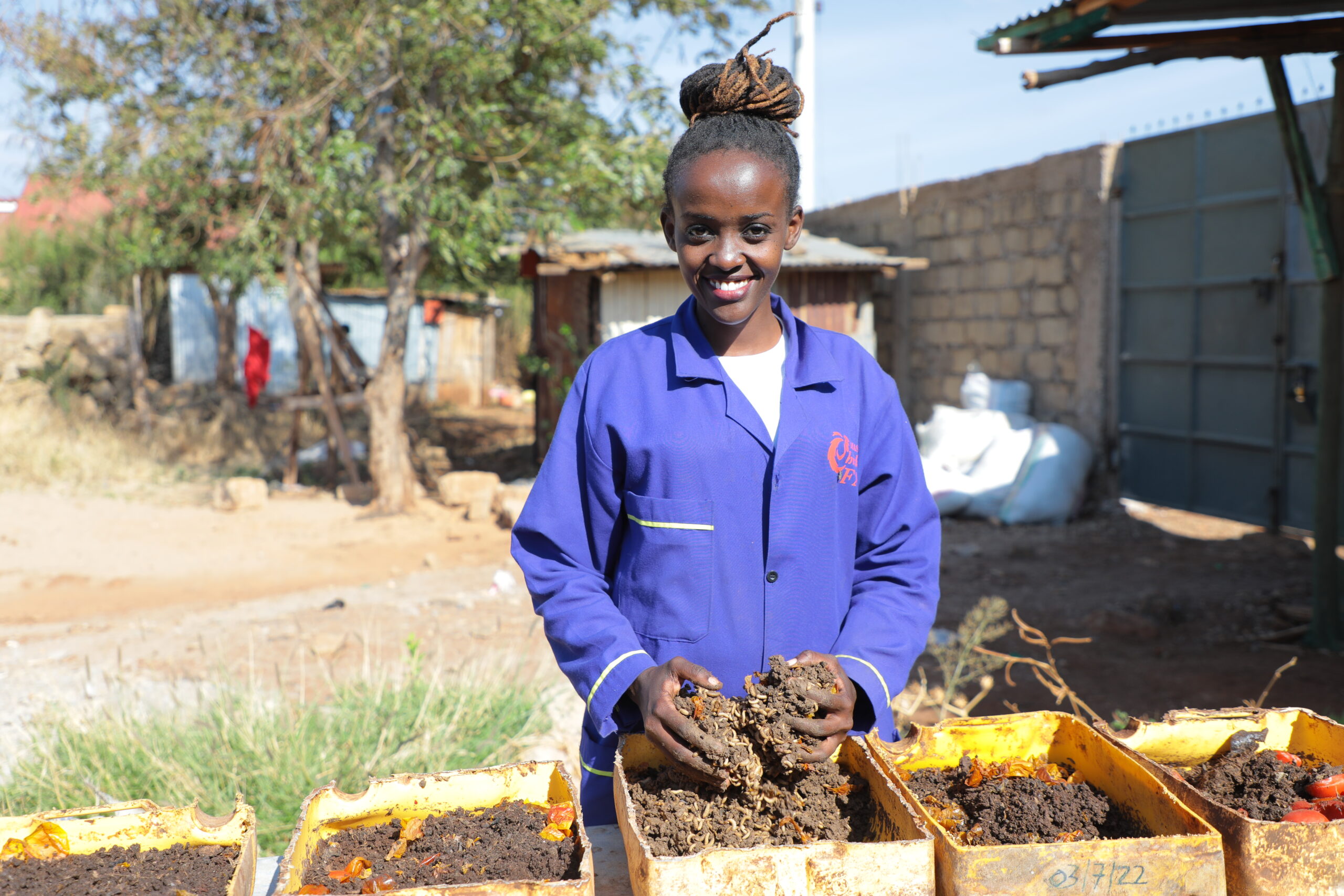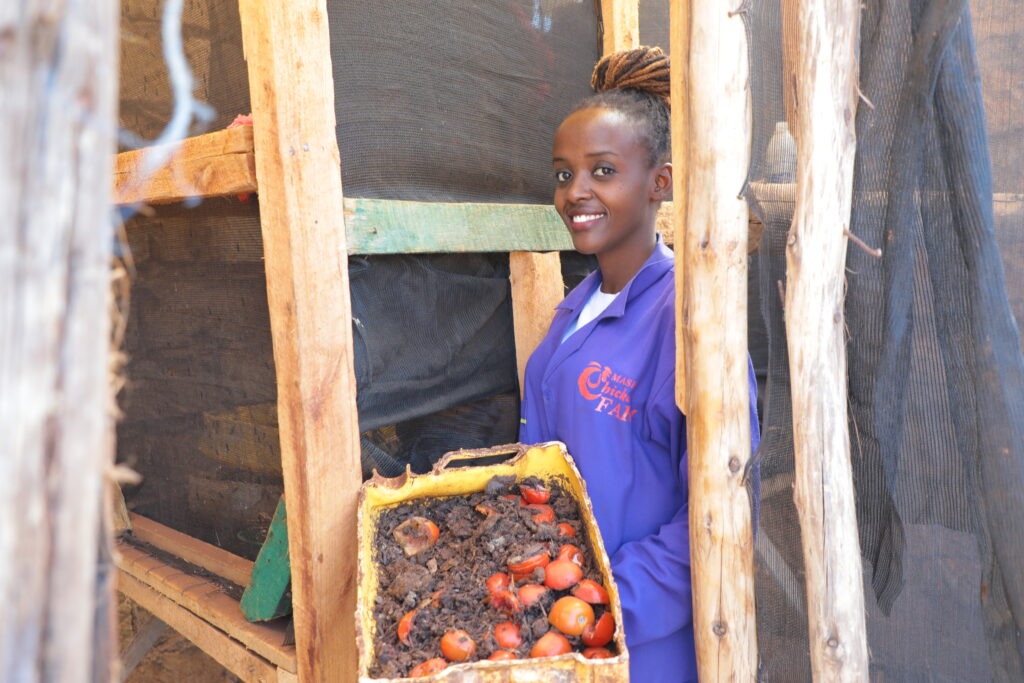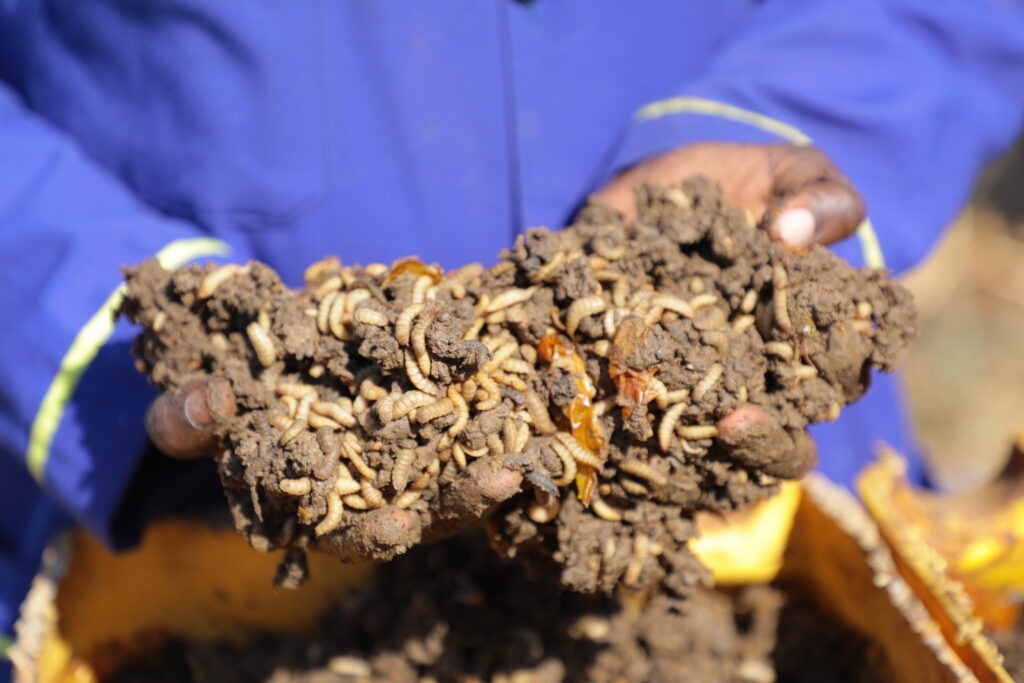
Twenty-eight-year-old Irene Wangui rears black soldier flies’ larvae on a farm located in Bulapesa on the outskirts of Isiolo town. She runs the business under the company name Masha Feeds Limited. At the larvae stage, black soldier flies astoundingly transform food waste into high-quality protein, used as an additive in animal feeds. This offers a clean and sustainable protein source that grows from food leftovers. This is an economical way of feeding livestock amid the global economic challenges and harsh weather conditions in arid and semi-arid regions.

Initially, Irene was solely a chicken farmer, but her business fell short in 2021 due to the negative financial impact of the COVID-19 pandemic. “Most hotels closed, and I lacked a chicken market,” Irene recounted. “At the same time, chicken feeds became expensive.” With hotels closed, could not keep her business afloat.
In the same year, the Feed the Future Kenya Livestock Market Systems Activity, funded by the U.S. Agency for International Development and implemented by ACDI/VOCA, issued grants of $300 to farmers affected by the pandemic in Isiolo County; Irene was one of them. She decided to use part of the grant to venture into rearing black soldier flies’ larvae, which she describes as a game changer. “To sustain my poultry business, I used part of the money to purchase 30 one-month-old chicks and the rest to venture into rearing black soldier flies’ larvae,” Irene said.
Using locally available material, such as old cardboard, mosquito nets, and polythene sheet, she made a fly cage enabling hundreds of black soldier flies to perch. “There is so much waste generated from our households,” she said. “Instead of disposing of it, I used it to feed the insects. After five days, the pupae emerge, and Irene feeds them kitchen waste, such as decomposing tomatoes and avocadoes.
“This has been a game changer to my business. Initially, I would purchase a 70-kilogram bag of chicken mash for $35. Now I only spend $15 on chicken feed components to add to the black soldier flies when necessary. This venture has lowered the cost of animal feeds, contributing to community resilience.”
-Irene Wangui

The Activity has attracted the interest of individual farmers and youth groups. “So far, I have trained two youth groups on insect farming and looking forward to training more,” she added.
She has also increased her number of chickens from 30 to 500, selling both broiler and kienyeji (indigenous) chicken retailing at $5 and $10 respectively. “[The Activity] also provided me with market linkages for chicken and animal feeds and trained me in digital marketing, which has been a pillar of my business,” she concluded.
Irene prides herself on being able to pay the tuition of a master’s degree program in food science and technology. She has also employed three full-term employees who oversee the farm operations as she pursues her studies. Her long-term goal is to create a model farm fr groups interested in insect rearing and other ways of organic farming. She also hopes to start a feed processing firm to help farmers cut costs on poultry feed.
Learn more about our Kenya LMS Activity here
Learn more about our work in Kenya here








